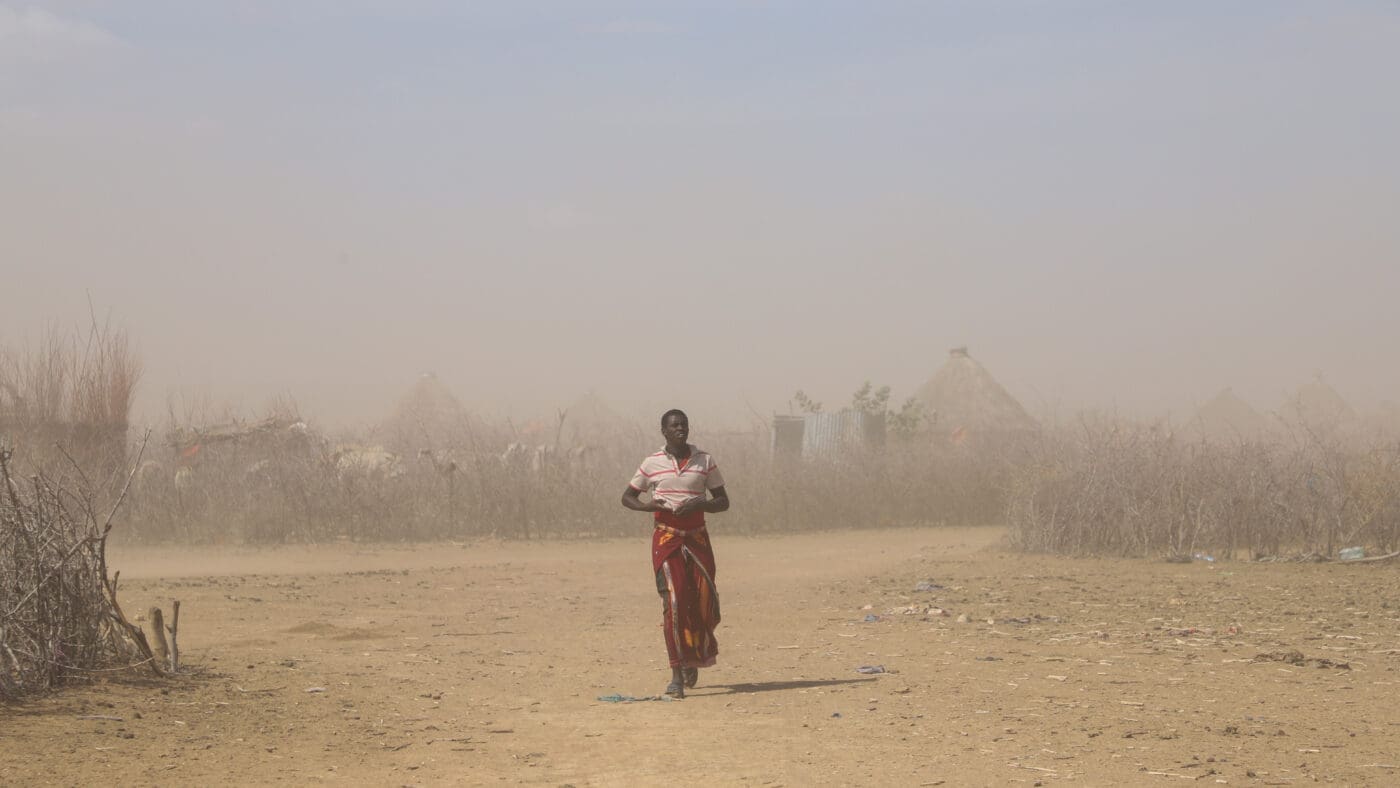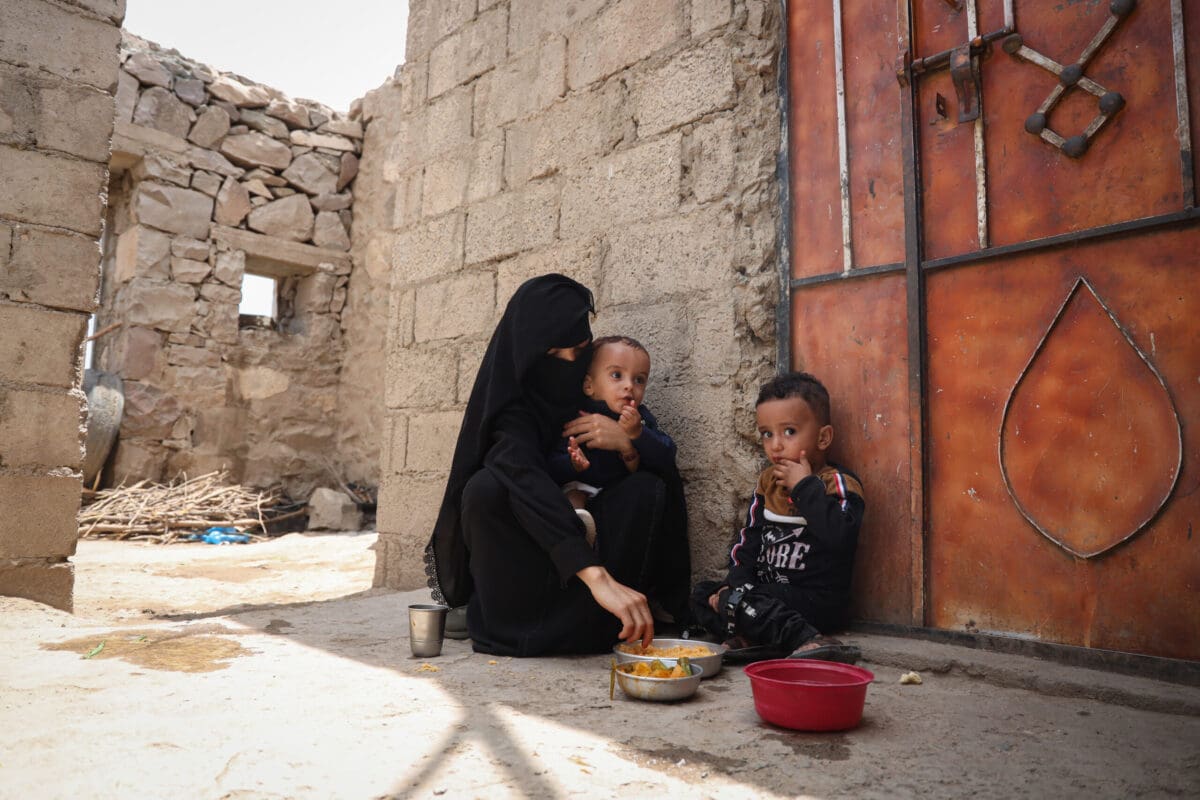
Dangerously Hungry
The Link Between Food Insecurity and Conflict
A new report fromWorld Food Program USA
While we have long known that conflict drives food insecurity, the Dangerously Hungry report shows that the inverse is also true: Food insecurity drives conflict.
The Terms You Need to Know
Otherwise known as hunger; When people do not have consistent access to sufficient, affordable and nutritious foods.
Conflict due to disruptions in food availability, quality or accessibility.
A Peek Inside the Dangerously Hungry Report
The 3 Drivers of Food-Related Instability
Research on food-related instability generally falls into three categories:

The Climate Crisis
The climate crisis is commonly considered a “threat multiplier” in security studies. Almost half the studies in Dangerously Hungry examine the impacts of drought, temperature and rainfall changes on food-related instability.
Extreme weather events or the long-term impacts of the climate crisis result in resource conflicts or economic shocks.

Resource Conflict
Resource-rich countries tend to experience higher levels of violent conflict. The unequal distribution of resources can spur grievances and rebellion among civilians.
Resource scarcity can also drive violent conflict. Where agricultural resources like land and water are scarce, some rebel groups are more likely to use violence to secure access to these limited resources.

Economic Shocks
Sudden changes to food prices or losses in income can drive instability, especially in urban areas in countries that rely heavily on food imports.
An increase in the cost of foods with cultural significance are more likely to incite widespread unrest — e.g. the “pasta riots” in Italy, “tortilla riots” in Mexico and “bread riots” in the Middle East.



The 3 Motivators of Food-Related Instability
Food insecurity alone is often not enough to produce conflict — it must also be met with external motivators that cause people to resort to violence over peace.

When people are unable to meet their most basic needs and the benefits of fighting outweigh the benefits of traditional economic activity, one’s motivation to join a militia or rebellion increases.


When people share grievances and act collectively, higher levels of violence may erupt. In many cases, hunger forces people’s awareness of broader inequalities, like discrimination based on ethnicity, religion or class.


A government’s limited capacity to meet its people’s basic needs can lead to questions over its efficacy and create a “vacuum effect”: a dynamic that provides an opening for rebel groups to offer an alternative and recruit people.

One of the most effective ways to reduce global instability is to ensure food security for those who cannot feed themselves or their families.
We must work to solve hunger before it leads to conflict.
Emerging Themes

Urban Hunger
As hunger continues to grow in cities around the world, it will have dramatic effects on global stability and place new demands on governments and humanitarian organizations alike.
Food as a Weapon of War
Food can be a source of peace or a weapon of war when it is denied. In May of 2018, the United Nations Security Council (UNSC) adopted Resolution 2417 that condemned the use of food as a weapon of war. International Humanitarian and Human Rights Law leaves many questions unanswered regarding so-called “starvation crimes.”
Food Assistance
There is considerable evidence that food assistance and development interventions can help address the “root causes” of conflict. But humanitarian organizations must increasingly be aware of the conflict sensitivity of their programs, especially in complex emergencies.
TAKE THE NEXT STEPS TO HELP US SOLVE GLOBAL HUNGER
Meet the Authors
Chase Sova is senior director of Public Policy and Research at World Food Program USA and a senior associate (non-resident) with the Center for Strategic and International Studies (CSIS) Global Food Security Program. He earned his PhD from Oxford University.
Galen Fountain is a public policy advisor to World Food Program USA and a lecturer at the University of Virginia Frank Batten School of Leadership and Public Policy.
Eilish Zembilci is a policy analyst with the World Food Program USA and an adjunct fellow (non-resident) of the CSIS Global Food Security Program. She is a Carlucci Fellow of Security Studies at Duke University’s Sanford School of Public Policy.
Tia Carr is a public policy associate at World Food Program USA. She formerly served in research positions with the CSIS Global Food Security Program and the Global Policy Institute at Loyola Marymount University.